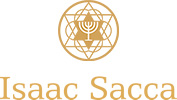“Everything depends on Heaven”

Display of faith or an excuse to evade responsibilities?
The Talmud points out in several passages (Berachot 33b, Megillah 25a) that “Everything depends on Heaven”. It is popularly thought that this saying refers to the fact that everything that happens is the immediate will of the Creator, ignoring the free will of the human being that God himself has created.
In principle, this popular interpretation omits the end of the sentence: “Everything depends on Heaven, except reverence for God.”
Even so, when an unusual event occurs, the wrong impulse of many people is to declare that God intervened directly against natural events and the will of the people to make a certain situation happen.
To think this way is a serious mistake.
First, it is affirming that God cannot avoid certain situations. Therefore, He must “cheat”: intervene externally to nature and fight against it or against the will of a human, as if nature or free will were forces that God does not completely dominate but with which He must deal.
As Maimonides (1138-1204) explains in Shemonah Perakim (“Eight chapters”, his introduction to Pirkei Avot’s treatise), to speak of an immediate, impulsive Divine Will, which changes over time and reacts to historical events, unable to prevent that which is evil in His Eyes, is a kind of heresy. It is to consider that the Creator did not know what would happen, waiting for events to react in one way or another.
It is to adjudge God either that He did not create the universe and its rules and that is why He must intervene, or that He did not correctly calculate the consequences of natural laws and the free will of the human being that He created.
Deep down, it is mistakenly assumed that God is limited and that He has to fight against other forces to manifest His dominion over the universe.
In Pirkei Avot, it is stated that even the supernatural miracles that occurred and were reported in the Torah were already established from the beginning of Creation. We refer to events such as the opening of the sea, the plagues against the Pharaohs and all the wonders described in the Holy Scriptures during the exodus from Egypt.
The Creator is the knower of everything that happened, happens and will happen. There is no concept in Him of “let’s see what happens and act according to what happens”.
Second, no one is God’s prophet or secretary to declare that he has the knowledge that God decided such a thing. In fact, as Maimonides points out in chapters 9 and 10 of Hilchot Yesode HaTorah (laws of the foundations of the Torah) of the Mishneh Torah, if someone speaks in the name of God but God has not said anything to him, he is committing one of the most heretical acts expressed in the Torah. Speaking on behalf of God when God did not tell you to is a form of false prophecy.
Third, we are justifying human error – even a criminal’s misdeed – by claiming that it was God’s will. In this way, the crime is not a crime or the error is not an error. Furthermore, we are declaring that there is nothing we can do to prevent mistakes or crimes, because it really is God’s will for them to happen. This contradicts the basic tenet of religion: that a person can act negligently if he chooses to do so.
Maimonides points out in Hilkhot Teshuva (laws of repentance or return) 5:1 of the Mishneh Torah, that the belief in free will is a basis of the Torah. Without free will – without the ability to choose between good and evil -, it would not make sense for God to order us to do certain things and forbid us to do others.
When we have to make decisions, it is important that we take responsibility for them. Refusing the commitment to choose by asserting lightly “It all depends on Heaven” is a way of denying our very connection to the Creator.
If someone didn’t study for a test and then didn’t pass, or if they skipped their date with their boyfriend or girlfriend and they got into a fight and ended up marrying someone else, or if they assaulted their partner and abused the children because they got nervous about a problem caused by a neighbor, and thus any similar daily situation, all this happens with the endorsement and according to the natural laws that God established, and within those laws is human choice.
When the Sages say, “Everything is from heaven” they add “except for the reverence of God” (that is, the practice of good and evil). They refer to the fact that only the events in which the human being does not have the slightest incidence are those that have to do with the laws of nature created by God in the creation of the universe, such as the law of gravity or the law of entropy. Human beings cannot modify them.
However, in relation to the acts of people, doing good or evil does not depend on heaven, but depends on the human being.

